Delhi and its adjacent states are engulfed in an intolerable smog that refuses to dissipate. The polluted air, understandably, causes everyone to cough, irritates their throats, and even spreads virus diseases. People with asthma and cardiovascular problems are in much worse shape. In these times, we all need to take certain steps to save ourselves in these times of distress. So here are 9 Tips to save yourself from Delhi Pollution:-
1. Avoid strenuous exercise
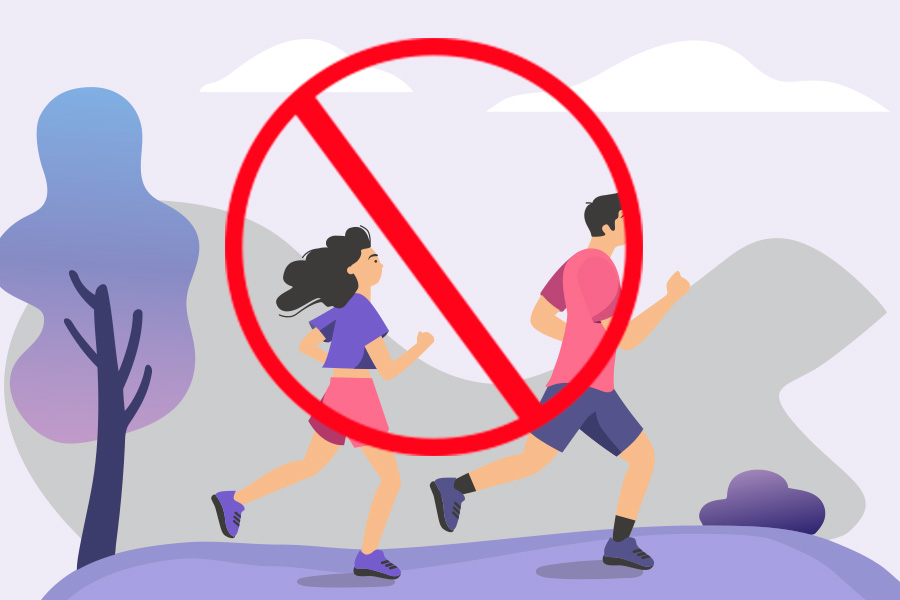
People who walk, run/jog, or engage in any outside exercise should wait until the pollution clears before doing so. When pollution levels are high, any type of activity, including running or even a leisurely walk, should be avoided. This is because more time spent outside equals greater exposure to harmful air and contaminants. The reason why specialists advise against exercising outside or jogging is that any strenuous physical activity increases the rate of breathing. Furthermore, when exercising, one is more prone to take in the pollutant through various methods like :-
- Breathe deeply through their lips
- Directly ingesting particulate matter, especially the heavier ones that are normally filtered by the nose.
2. Wear a face mask when going outdoor
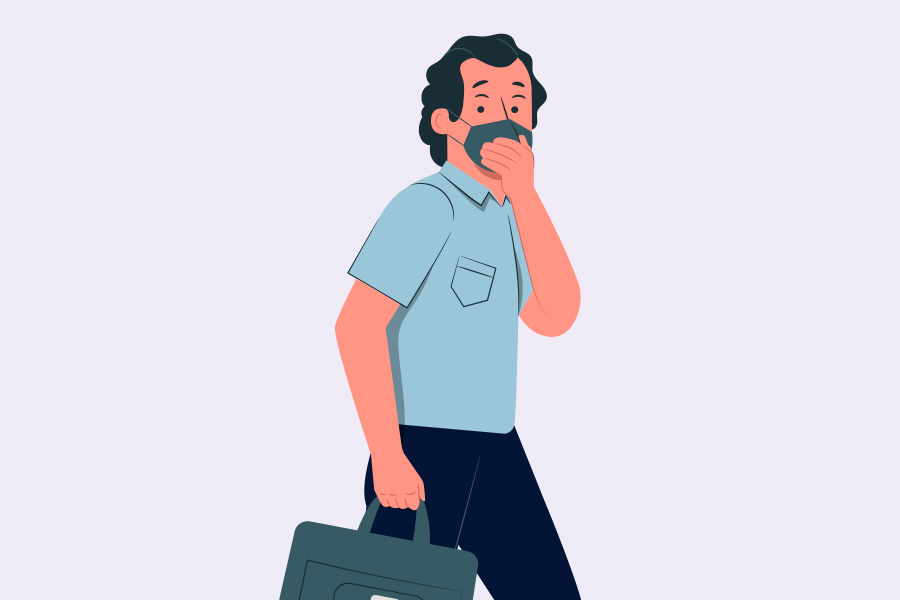
N95/99 masks should be used whenever you step out. Dr. Vivek Nangia, Director and Head of Pulmonology says that while purchasing a mask, three factors should be considered. To begin, inquire about the filter size, or the size of particulate matter it can filter. Particles smaller than 2.5 microns are both damaging and dangerous, so choose a mask that can filter them out. Because there are no government-defined quality standards fo masks in India, one must rely on American rules for the time being. The two mask qualities recommended by American standards are N95 and N99. The final and most critical factor to consider is the fit. A mask should fit snugly over the bridge of the nose and cover the whole nose and mouth. It will utterly ruin the point if it does not fit correctly.
3. Plant indoor air purifying plants

Plants that purify the air, such as Aloe Vera, Ivy, and Spider Plant, can be used in both the home and the workplace. They aid in the purification of indoor air and the reduction of indoor pollutants. These indoor plants are low-maintenance since they don’t require frequent watering, harsh sunshine, or an adequate supply of oxygen.
4. Use an air purifier for indoor at office or home
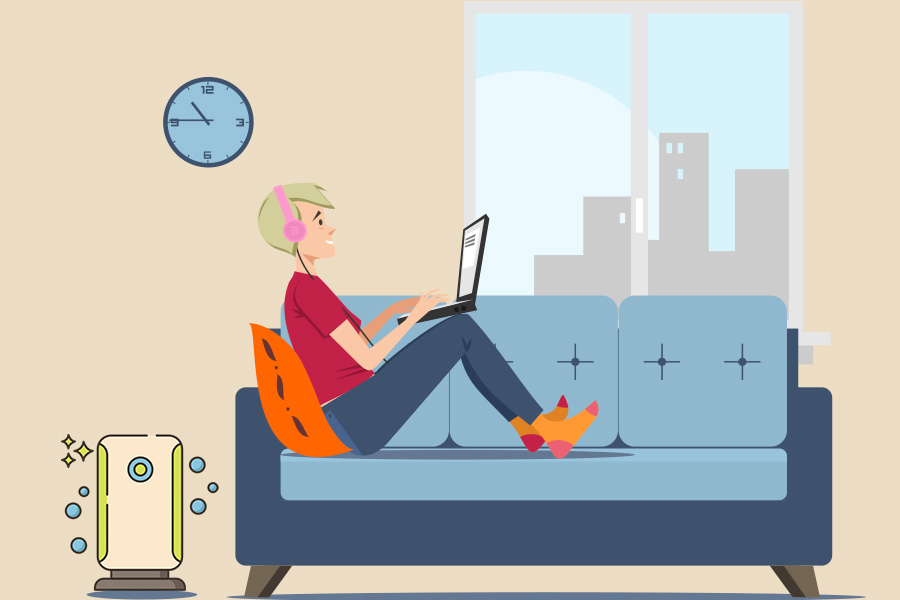
Use an air purifier. Ideally everyone in their room should have an air purifier to combat the indoor air pollution. But there are specific groups of people like, old men and women, kids and pregnant women. They are the ones who are most vulnerable to the harmful consequences of this polluted air. Please ensure they have an air purifier in their room so that they don’t inhale the polluted air.
5. Take steam bath regularly
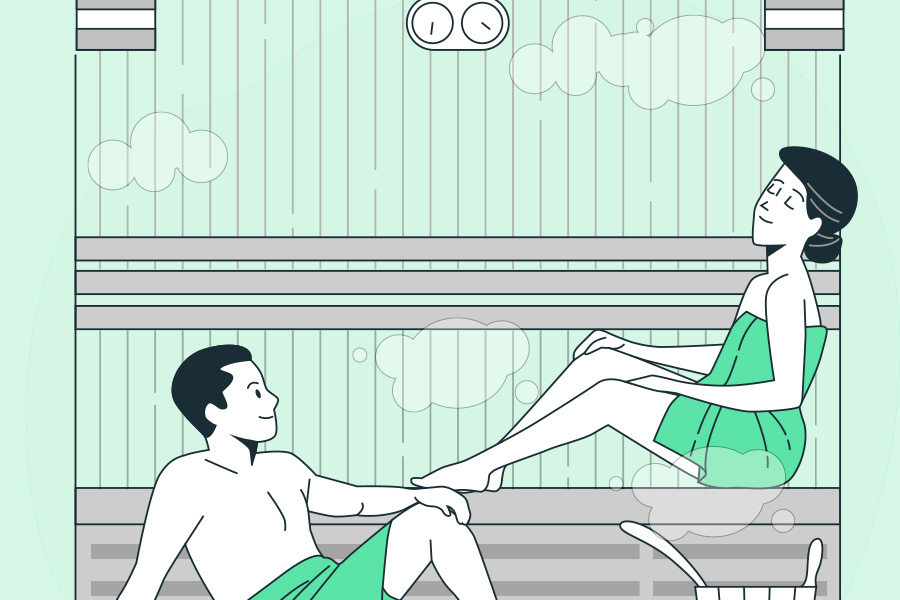
To relax your airways and assist your body eliminate hazardous particle substances, steam is the best you can do. Try inhaling steam with a few drops of eucalyptus oil every day in the evening and you can see the wonders it will do for your lungs.
6. Eat right amount of healthy food

Consume vitamin C-rich fruits, magnesium-rich meals, and omega-rich foods. By maintaining your immunity, a balanced diet can help you combat the negative consequences of pollution. Vitamins A, C, and E aid in the healing of the body and the prevention of inflammation caused by pollution or other toxins. Nutritionists recommend eating carrots, sweet potatoes, radish, spinach, fenugreek (methi), and pumpkin for Vitamin A, based on the vegetables and fruits available this season. Vitamin C is abundant in lemon, Amla, and oranges, whereas Vitamin E is abundant in rice bran oil and almonds.
7. Monitor the air quality index regularly
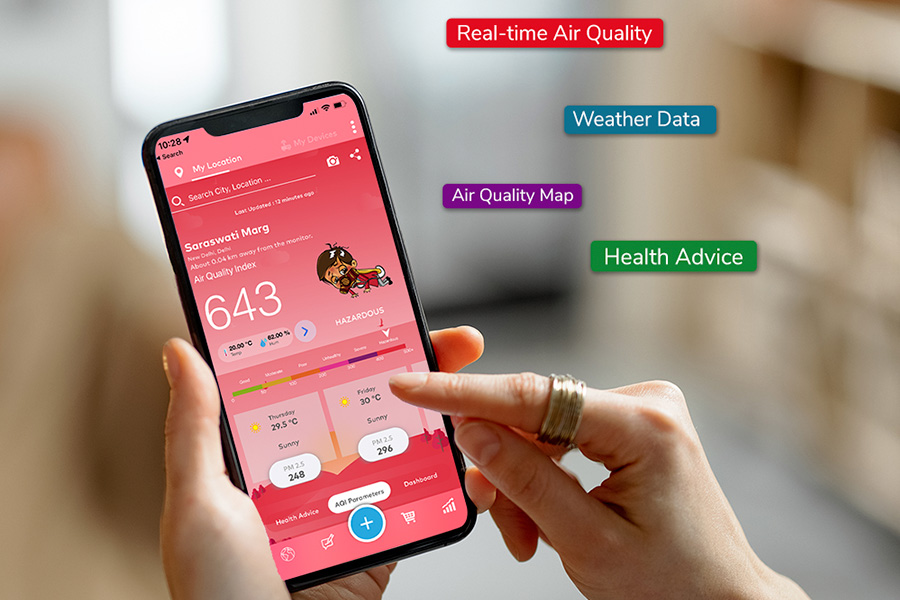
Check your local air pollution forecasts on a daily basis on an authentic source AQI website or mobile app. You may obtain a sense of the air pollution hot areas in your neighbourhood by carrying an air quality monitor with you on your commute or workout paths. You may also track pollution levels along different routes and at different times of the day. The color-coded projections can tell you when the air in your neighbourhood is bad.
8. Examine your cleaning and personal-care supplies
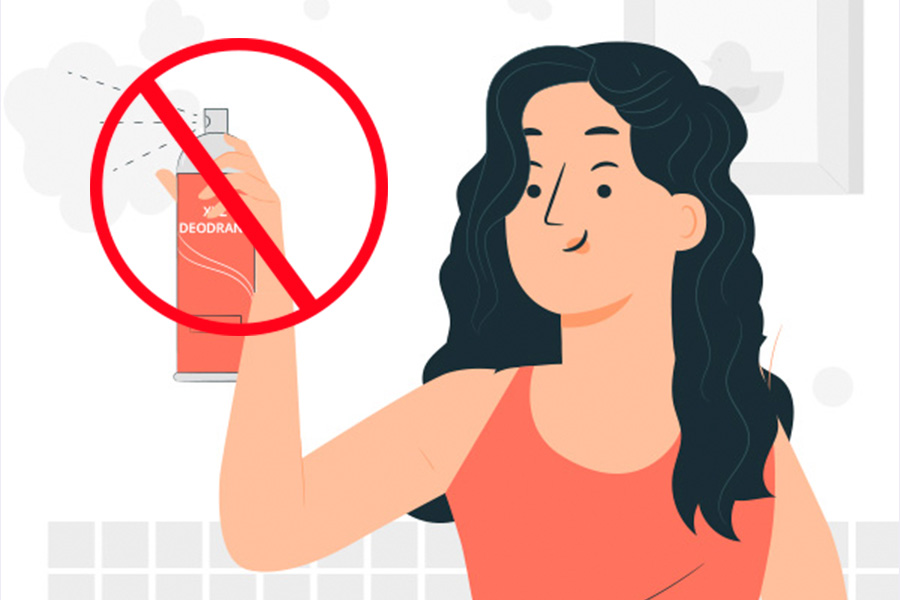
Even when not in use, several of your favourite home goods may release dangerous VOCs. Switching to no or low-VOC products and avoiding goods containing perfumes, irritants, or combustible components is recommended by the American Lung Association. When not in use, high-VOC goods should be kept out of the house or in a storage room.
9. Maintain proper ventilation
 You may help minimise the concentration of airborne contaminants in your house by boosting the transfer of indoor and outside air on days when the air quality is favourable. When cleaning, cooking, or opening new furniture, electronics, or other things that may emit VOCs, you should take extra precautions to maximise ventilation.
You may help minimise the concentration of airborne contaminants in your house by boosting the transfer of indoor and outside air on days when the air quality is favourable. When cleaning, cooking, or opening new furniture, electronics, or other things that may emit VOCs, you should take extra precautions to maximise ventilation.
If all these steps are taken diligently, there are high chances that you can save yourself from the long term effects of air pollution. You can not only save yourself, but share these “9 Tips to save yourself from Delhi Pollution” with everyone and help them in protecting themselves from the air pollution.